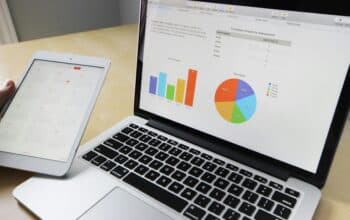As a business owner, you know that information is power. The ability to track and analyze data can give you a major advantage in today’s marketplace. But what if you don’t have the time or resources to do this yourself? This is where business reporting comes in.
Business reporting can help you keep track of key performance indicators (KPIs), understand trends, and make better decisions for your business. In short, it can help you run your business more effectively.
Many different industries can benefit from business reporting, including:
1. Retail
In the retail industry, business reporting can provide valuable insights that help to improve profitability and boost customer satisfaction. It helps managers to track progress and identify areas of improvement, as well as highlight any potential problems. By tracking sales data, retailers can identify patterns and trends that may be indicative of possible problems or opportunities.
For example, a sudden drop in sales for a particular product line could signal that something is wrong with the product itself, or that customers are unsatisfied with the selection. By analyzing this data, retailers can take steps to correct the issue and avoid future losses. Also, business reporting can help to shed light on which products are selling well and which are not. This information can be used to make informed decisions about inventory levels, pricing, and promotions.
Ultimately, business reporting is an invaluable tool for retail businesses interested in achieving long-term success.
2. Manufacturing
In any manufacturing business, having accurate and up-to-date information is crucial to making sound decisions about products, processes, and resource allocation.
Business reporting provides a way to collect and track data so that managers can identify trends and make informed decisions about where to focus their efforts. In addition, business reporting can help to improve communication between different departments within a manufacturing company. By sharing information regularly, all team members can be sure that they are working towards the same goals and objectives. Finally, business reporting can also provide a valuable feedback loop for quality control and continuous improvement initiatives.
Also, manufacturers can identify opportunities for improvement and make the necessary adjustments to improve their bottom line by tracking key metrics such as production costs, asset utilization, and personnel productivity. Besides those, business reporting can help manufacturers to better understand their customer base and develop strategies to attract new business much like in retail. By identifying trends in customer behavior, manufacturers can tailor their marketing efforts to better meet the needs of their target market.
Businesses can identify areas where they need to make changes to improve their products or processes by tracking data over time. In short, business reporting is an essential tool for any manufacturing operation.
3. Healthcare
Good decision-making in healthcare requires access to accurate and timely information. Business reporting provides a structured way to collect, interpret, and present data that can be used to inform decisions about patient care, resource allocation, and workflow optimization. When used effectively, business reporting can help healthcare organizations to improve the quality of care while also reducing costs.
For example, business reporting systems can be used to track patient outcomes and identify areas for improvement. In addition, business reporting can help to identify wasteful or inefficient practices that are driving up costs.
Also, by tracking various metrics such as length of stay, readmission rates, and mortality rates, business reporting can help identify areas of improvement within a healthcare facility. Besides that, business reporting can be used to assess the impact of new initiatives like setting up a new operating room or expanding the cover of care to counselling. Healthcare leaders can make informed decisions that improve the quality of care for patients by evaluating the data regularly.
On top of that, business reporting can also be used to benchmark performance against other healthcare facilities. In doing so, healthcare organizations can identify best practices and adopt innovative methods of care delivery. By making data-driven decisions, healthcare organizations can improve the quality of care while also reducing the financial burden on patients and the general public.
4. Hospitality
Many businesses in the hospitality industry rely on business reporting to measure their performance and make necessary improvements. Business reporting can help businesses track their revenue, expenses, occupancy rates, and customer satisfaction levels.
By understanding where they are performing well and where they need to improve, businesses can make the necessary changes to drive growth and better serve their customers. Business reporting can also be used to benchmark performance against competitors, assess customer satisfaction levels, and evaluate the effectiveness of marketing campaigns. Furthermore, business reporting can help businesses to comply with regulatory requirements and avoid penalties.
In addition, business reporting can help businesses identify trends in the marketplace and adjust their strategies accordingly. For example, if a business notices that its occupancy rate is declining, it may need to adopt new marketing or pricing strategies.
When used effectively, it can help businesses to thrive in a highly competitive industry.
5. Education
It is no secret that the education system has been under a great deal of scrutiny in recent years. Students are being held to higher standards than ever before, and educators are feeling the pressure to show tangible results. Business reporting can be an invaluable tool in this process.
By tracking progress and setting goals, business reporting can help educators to better assess their students’ needs and target areas for improvement. It can also provide a much-needed accountability system for educators.
While business reporting is typically targeted at investors and shareholders, it can also be useful for students. Students can learn about the inner workings of businesses and gain insight into the real-world applications of their coursework by reading business reports. It can also provide valuable information for students who are considering a business career. When students know that their performance is being monitored, they are more likely to take their studies seriously.
In short, business reporting can play a vital role in ensuring that students receive the best possible education.
Conclusion
There are many benefits that businesses can reap by using business reporting. It can help businesses to track their performance, benchmark their progress, and make necessary improvements. Business reporting can also be used to assess the impact of new initiatives, understand customer satisfaction levels, and comply with regulatory requirements. Furthermore, business reporting can help businesses identify trends in the marketplace and adjust their strategies accordingly. When used effectively, it can help businesses to thrive in a highly competitive industry.













